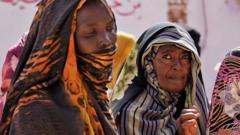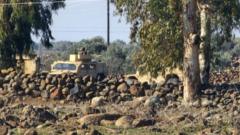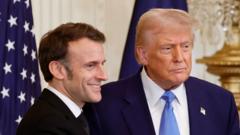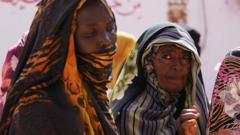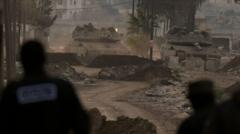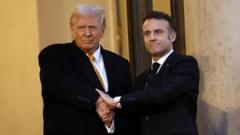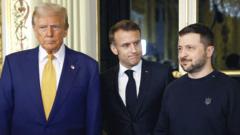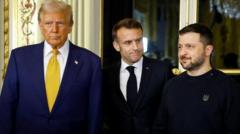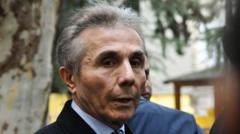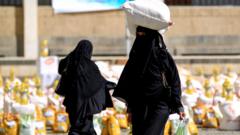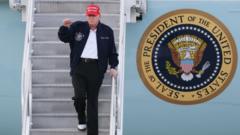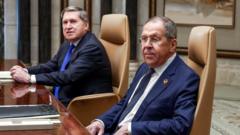The Syrian national dialogue conference highlights opportunities for rebuilding post-Assad, while facing criticism regarding inclusivity and the representation of various factions, notably the Kurdish-led entities.**
Syrian Interim President Declares 'Historic' Dialogue for National Rebuilding**
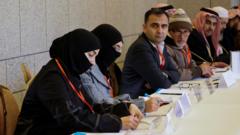
Syrian Interim President Declares 'Historic' Dialogue for National Rebuilding**
Gathering 600 delegates, Syrian leaders address key issues for a transitional government amid mixed reactions and calls for inclusivity.**
Syria's interim president, Ahmed al-Sharaa, has heralded the national dialogue conference as a "historic" opportunity for the nation to rebuild following the ousting of Bashar al-Assad. In a speech to the assembly of 600 delegates, Sharaa emphasized the critical importance of integrating armed groups into a unified state military and ensuring that only the government possesses weapons. He stated, "Syria's strength lies in its unity," as he called for recommendations on transitional justice, economic reform, and constitutional changes to guide the soon-to-be-formed transitional government.
However, the dialogue has faced significant criticism for its expedited nature, particularly the exclusion of the Kurdish-led Syrian Democratic Forces (SDF) and the Autonomous Administration of North and East Syria (AANES) from the conference. These groups, controlling much of northeastern Syria and considered key components of the country, were not invited due to their refusal to integrate into the envisioned national military. The absence has raised concerns regarding the representation of diverse communities within Syria's political discourse.
Sharaa's administration, which took power following a swift rebel advance that led to Assad's flight to Russia, now seeks to replace the previous regime's institutions. Part of this transition entails the establishment of a transitional justice body to address crimes committed during the civil war, a critical aspect given that more than 600,000 people perished and millions were displaced during the conflict.
As the conversation continues, Sharaa reiterated the challenge of achieving arms unity and control by state forces, deeming it crucial to maintain national integrity. Despite the government's control over major urban centers, various armed factions continue to exist throughout the nation.
The SDF, rejecting calls for integration, argues that their exclusion underscores a lack of genuine effort towards an inclusive dialogue. Critics from the AANES also contend that the conference fails to meaningfully engage various ethnicities and groups, labeling current efforts as superficial.
In parallel, international observers await the outcomes of this conference closely, pressured by the sprawling effects of civil war sanctions imposed by the West on Syria, particularly emphasizing the need for an inclusive political solution reflecting the multifaceted society.
Amid these developments, the European Union recently eased sanctions on Syria's energy, transport, and banking sectors to promote humanitarian aid and reconstruction initiatives. Syrian officials view this as a positive step, although they have expressed discontent with persistent sanctions perceived as unjust and damaging to the Syrian populace.
Overall, the national dialogue conference places Syria at a crucial juncture, presenting both challenges and opportunities as the interim government works to effectively unify the country and lay the groundwork for a stable future.

